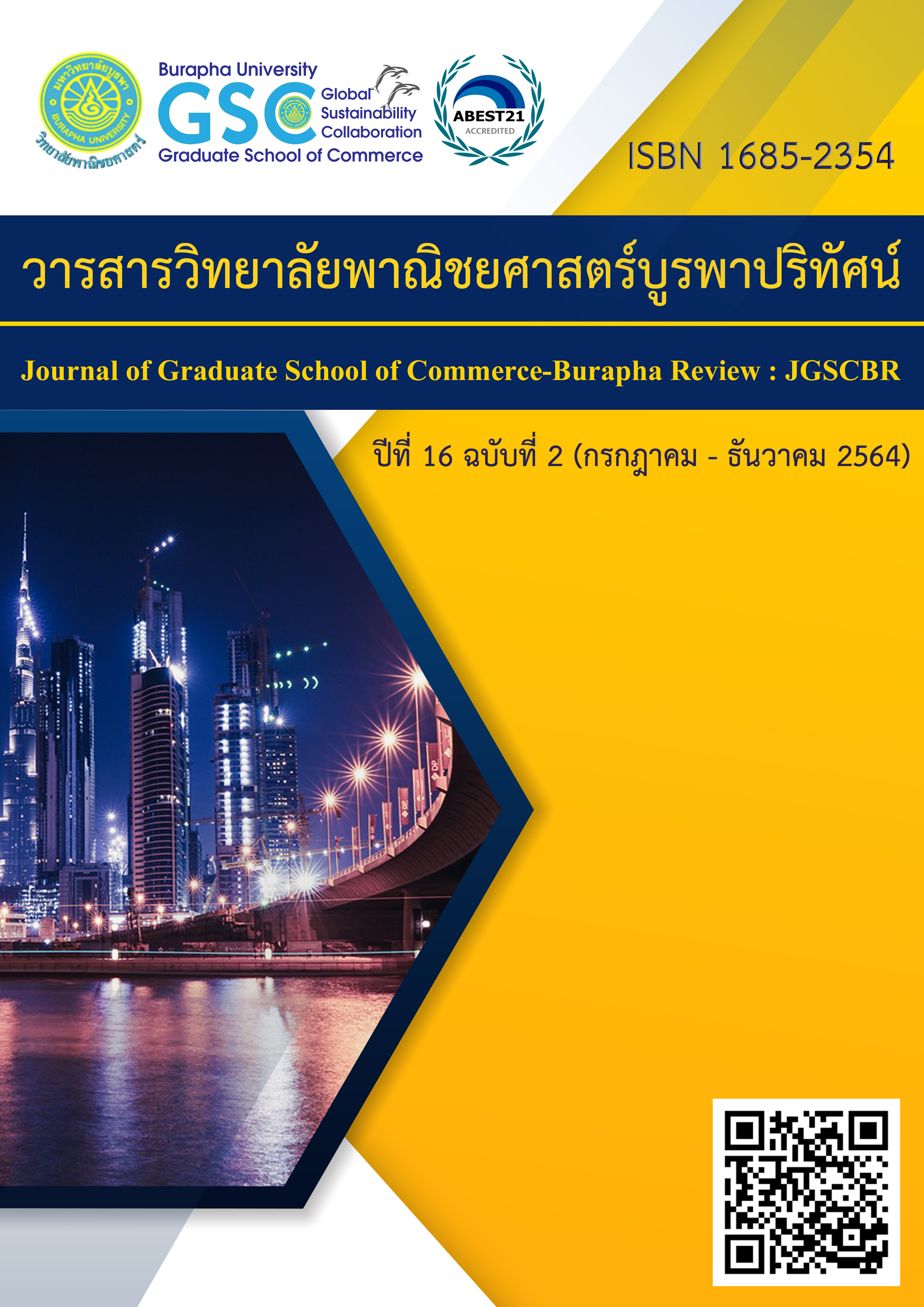THE PATTERN OF CULTURAL TOURISM MANAGEMENT IN LOW-INCOME PROVINCES IN EASTERN OF THAILAND: A CASE STUDY OF NAKHON NAYOK PROVINCE
Main Article Content
Abstract
This research has 4 objectives as 1) to study policy promotion for cultural tourism in Nakhon Nayok Province. 2) To study the management of cultural tourism in Nakhon Nayok Province. Using a qualitative research methodology that consisted of in-depth interviews with 1 TAT representative of Nakhon Nayok office, 4 government representatives, 2 community leaders who wanted to develop, 5 successful community leaders, and 5 tour and tour guide executives to collect the data to analyzed (Content analysis) and summarized the research results according to the research objectives in the final step. The study found that the policy promotion for cultural tourism in Nakhon Nayok Province can be done as follows 1) Promoting outstanding cultural identity in each community 2) Development of cultural tourism in the community as a hub to connect with other communities in the neighboring area. 3) Promote the extension of cultural tourism for the new generation. 4) Promote the integration and collaboration between government agencies, private and community. 5) Establishing a central database of outstanding and unique cultures and traditions of each community. Management of cultural tourism in Nakhon Nayok province arising from community participation can be done as follows 1) use the advisory committee who came from the government for management. 2) Management clearly separated into departments or departments. 3) Involvement of government agencies, private sector and people in the community. 4) The promotion of continuous and sustainable cultural tourism and expanding to other communities. 5) Community participation in managing community enterprises by using the same management principles as the community cooperative management.
Article Details
The owner of the article does not copy or violate any of its copyright. If any copyright infringement occurs or prosecution, in any case, the Editorial Board is not involved in all the rights to the owner of the article to be performed.
References
กระทรวงมหาดไทย. (2550). แผนยุทธศาสตร์กรมส่งเสริมการปกครองท้องถิ่น. สืบค้นเมื่อ 10 กุมภาพันธ์
2563 จาก http://www.thailocaladmin. o.th/index.jsp.
การท่องเที่ยวแห่งประเทศไทย. (2563). ททท. คาดรายได้เที่ยวไทยปี 64 เลวร้ายสุดวูบเหลือ 6.75 แสนล้าน.
สืบค้นเมื่อ 10 กุมภาพันธ์ 2563 จาก https://www.bangkokbiznews.com/news/detail/892768
การท่องเที่ยวแห่งประเทศไทย (2560) ยุทธศาสตร์การท่องเที่ยว. กรุงเทพฯ: สำนักนโยบายและแผน
กระทรวงการท่องเที่ยวและกีฬา.
วรรณพร วณิชชานุกร. (2555). การท่องเที่ยวเชิงอนุรักษ์. กรุงเทพฯ: ทรรปณ์ศิลป์
ศูนย์วิจัยเศรษฐกิจ ธุรกิจและเศรษฐกิจฐานราก. (2559). รายงานสถานการณ์และแนวโน้มธุรกิจอุตสาหกรรม
ประจำไตรมาส 4 และแนวโน้มปี 2560. กรุงเทพฯ: ศูนย์วิจัยเศรษฐกิจ ธุรกิจและเศรษฐกิจ
ฐานราก.
สำนักงานจังหวัดนครนายก (2560). รายการข้อมูลสถิติทางการ ด้านเศรษฐกิจ: ท่องเที่ยว. สืบค้นเมื่อ
15 กุมภาพันธ์ 2563 จาก http://nknayok.nso.go.th/index.php?option=com_content&view=article&id=322:tour092017&catid=84&Itemid=558
Cohen, S. (2006). Public Ethics and Public Entrepreneurship. Retrieved August 10, 2018 from
CREMA. (2010). What determines the world heritage list? An econometric analysis. Center for
Research in Economics, Management and the: University of Zurich. Arts.
Gao, S., Huang, S., and Huang Y. (2009). Rural Tourism Development in China. International
Journal of Tourism Research, 11(5), 439-450.
Global Sustainable Tourism Council. (2015). PATA and the global sustainable tourism
council to conduct sustainable tourism training. Bangkok: PATA Engagement Hub.
Kercher, B., & Du C. H. (2002). Cultural tourism: The partnership between tourism and
cultural heritage management. New York: Routledge.
Lee, C. K., and Back, K. J. (2003). Pre and post casino impact of resident’s perception. Annals
of tourism research, 30(4), 868–885.
Macrae, G. (2013). Culture Tourism Impacts, Planning and Management. Oxford:
Butterworth-Heinemann.
McKercher, B. & Cross, H. (2003). Cultural Tourism: The Partnership
Between Tourism and Cultural Heritage Management. New York: The
Haworth Hospitality Press.
Pike, S. (2008). Resident support for Culture tourism development. Annals of Sustainable Tourism Research, 17, 586-599.
Ritchie, B. & Inkari, M. (2006). Host community attitudes toward tourism and cultural
tourism development: The case of the Lewes District, Southern England.
International journal of tourism research, 8(1), 27-44.
Shao, Q. (2007). Develop rural tourism and facilitate new rural area construction. Qiushi,
35(4), 42–44.
Swarbrooke, J. (2002). The Development and Management of Visitor Attractions (2nd ed.).
Oxford: Butterworth-Heinemann.
UNWTO. (2018). UNWTO Tourism Highlights (2018 Edition). Madrid: United Nations World
Tourism Organization.
Williams, J. & Lawson, R. (2001). Community issues and resident opinions of tourism. Annals
of Tourism Research, 28(2), 269–290.


